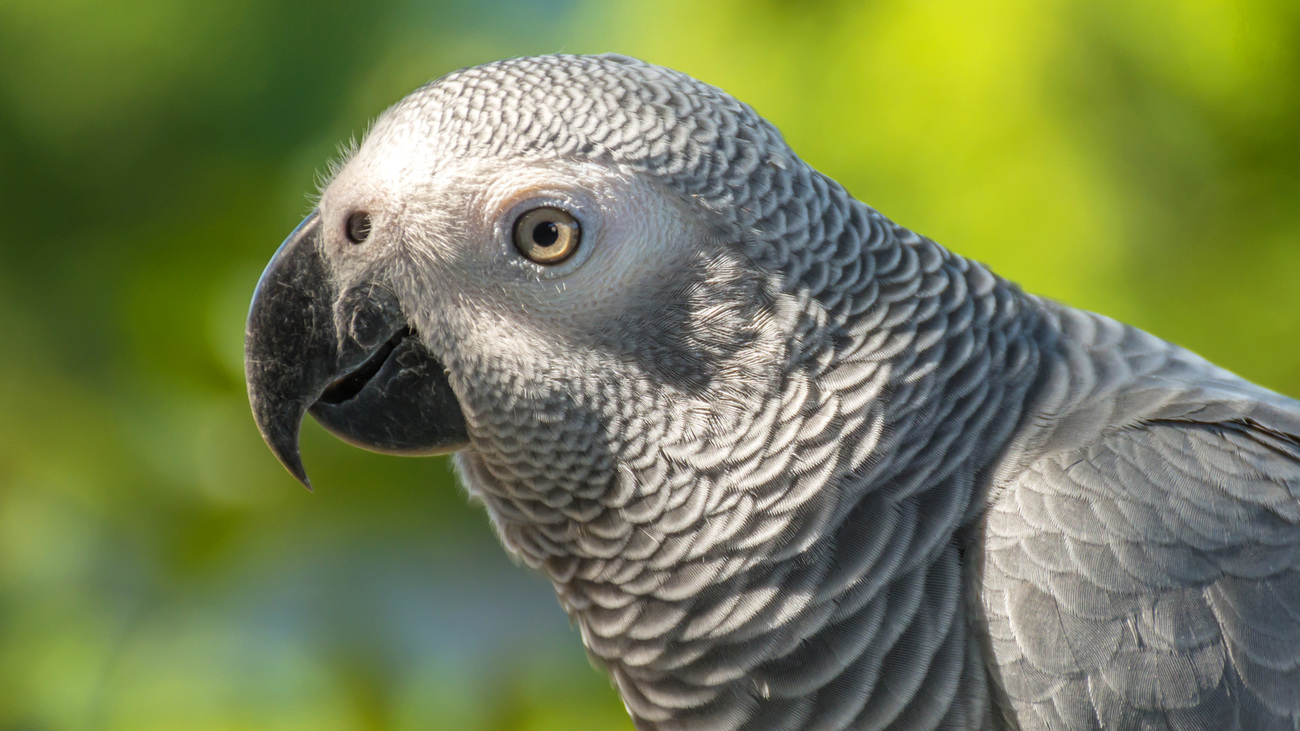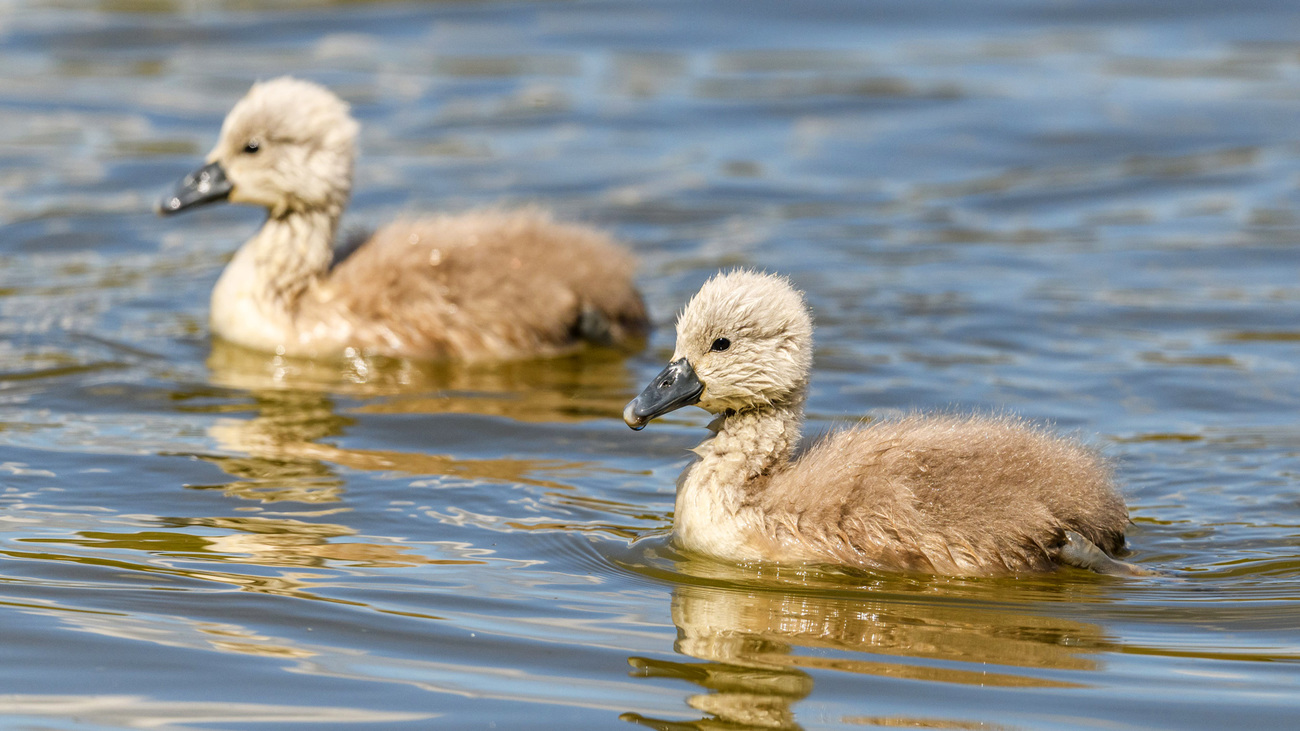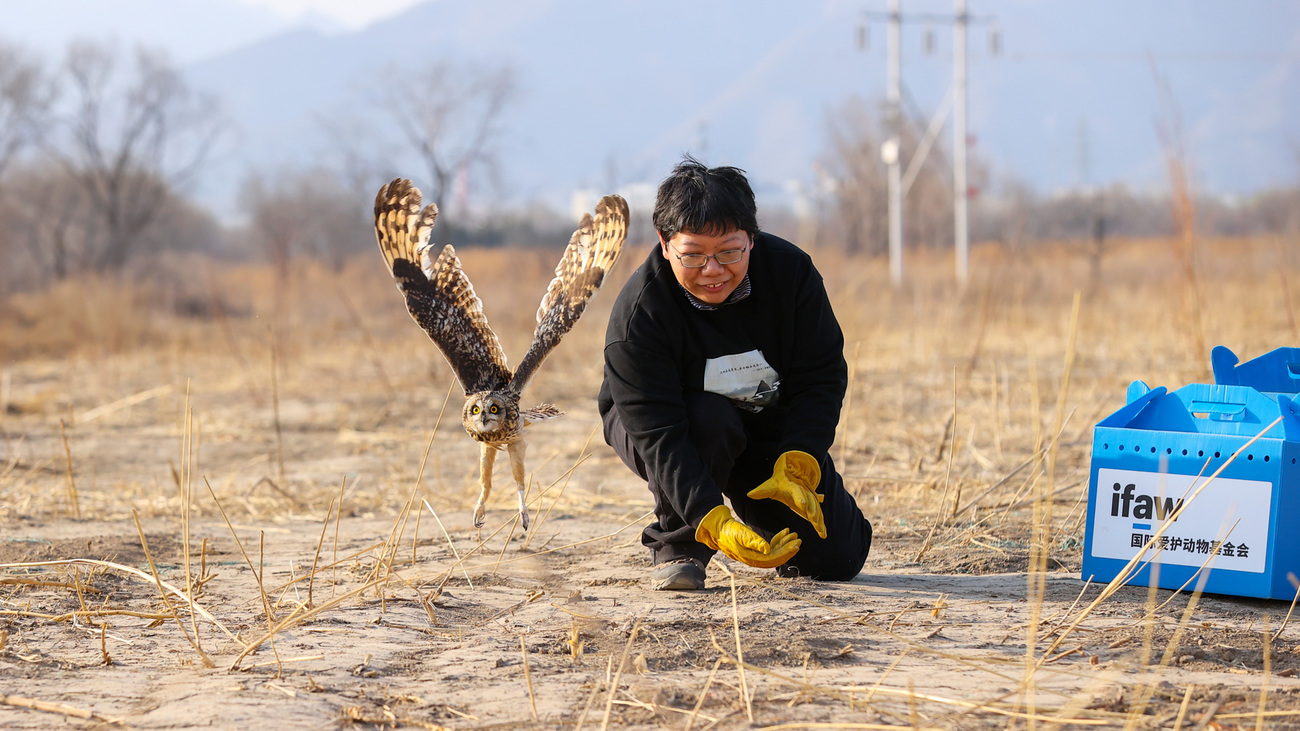How to help protect endangered birds
How to help protect endangered birds
However, many bird species face the risk of extinction due to habitat loss, climate change, wildlife crime, and other human activities. In the US, bird populations have dropped by more than a quarter over the last five decades. But declining bird populations aren’t just a problem in North America. In the EU, populations have declined by around 600 million breeding birds since the 1980s—that’s one out of every six birds lost. And researchers have found that 49% of the world’s bird species are in decline, while 21.9% are considered a significant conservation concern.
The good news? There are small things that each of us can do to help protect endangered birds and ensure these species’ survival. This International Bird Day, let’s explore some of the ways you can help.
10 ways to protect endangered birds
Here’s a list of easy ways you can help endangered birds in your local area and all over the world. Whether you focus on one action or try to do them all, you’ll be contributing to the conservation and survival of these beautiful flying animals.
1. Put decals on windows to break up reflections
Did you know that in the US alone, it’s estimated that up to one billion birds die each year from flying into windows? Only around 40% of stunned birds that have flown into windows recover, even under the best veterinary care.
Birds collide with windows at such high rates because they have difficulty distinguishing transparent glass from clear air. In some cases, windows can also reflect the sky and trees, leading birds to believe that it’s safe to fly into them. It’s a more pressing issue for some birds during migratory periods and mating seasons.
One simple, easy way to prevent birds from colliding with glass is by putting visual markers on the outsides of windows. Glass murals can be particularly effective, as well as decals or frosted patterns. This helps birds to see and avoid windows, significantly reducing fatalities.
2. Turn off building lights at night
Not only do artificial outdoor lights cause excessive light pollution at night, but they can also be fatal for birds. It’s thought that migrating birds are attracted to lights on buildings, leading them to collide with windows and die.
It’s estimated that turning off half of lighted windows at night could reduce collision rates by 11 times in the spring and by six times in autumn. This could bring down the bird mortality rate by an estimated 59%.
Turning off the lights overnight, especially in unoccupied buildings, is a simple action that can reduce energy use and carbon dioxide emissions, decrease light pollution, and prevent millions of bird deaths each year.


3. Avoid certain pesticides and chemicals
Birds can be harmed by chemicals like pesticides and herbicides through direct contact or by ingesting contaminated seeds or prey. These chemicals can also indirectly affect bird populations by killing off insect populations, reducing the amount of food available. When any animal ingests dangerous chemicals, this can have a ripple effect on the entire ecosystem as the chemicals travel up the food chain.
Beyond reducing the amount of pesticides you use in your personal garden, you can also opt for purchasing organic fruits and vegetables when possible. Organic produce is grown without using these chemical pesticides. This benefits wildlife and your own health, too.
4. Keep pets indoors
Other than habitat loss, cat predation is the top human-related reason for bird population decline.
Across the US, cats are thought to kill between 1.3 to four billion birds each year, in addition to other forms of wildlife. Domestic cats are responsible for 31% of these bird deaths. In the UK, pet cats kill an estimated 160 to 270 million animals annually, 25% of which are birds. The situation isn’t much better in the EU, where a 2019 study found that the number of garden birds killed by cats in France and Belgium increased by more than 50% in 15 years.
Even when they are well-fed at home, pet cats who roam outside instinctively hunt and kill birds.
To combat this issue, keep your cat indoors, set up enclosed outdoor ‘catios’, or even train your cat to walk on a leash. This can help prevent millions of bird deaths per year.
5. Add native plants to your garden
Over the years, humans have continued to develop land for their own use—urban areas, housing, industry, and agriculture. This has led to significant habitat loss for wildlife, including birds. Native bird species rely on native plant species that they have co-evolved with to survive.
With fewer trees and other native plants, birds have fewer places to nest and seek shelter. Plus, many non-native plant species found in gardens are specifically chosen to be less friendly to insects that birds eat, eliminating essential sources of food.
To help, try planting native insect- and bird-friendly plants in your garden.
In the US, more than 40 million acres of lawns could be replaced with bird-friendly native plants. In the UK, gardens cover more space than all UK National Nature Reserves combined, making them essential spaces in efforts to protect birds. The British Trust for Ornithology recommends stocking your garden with plants and trees that produce berries and those that provide good nesting opportunities to make your garden more bird-friendly.
6. Become a birdwatcher
Observing birds in their natural habitat is not only enjoyable but also educational—and it can support research and conservation efforts. Learning about birds’ behaviours, needs, and the threats they face can inspire efforts to protect them. Just ensure you maintain a safe distance from birds to avoid disturbing them, and keep their environment clean and litter-free.
Scientists rely on birdwatcher data, with people reporting the bird species they see in their gardens, neighbourhoods, and in the wild. These efforts can help them become aware of declining populations before it’s too late.
7. Know and follow laws protecting birds
A key way to support bird conservation is by understanding, supporting, and following laws and policy initiatives that safeguard bird populations.
Here are just a few examples:
- The EU’s Birds Directive protects all wild birds and their habitats across Europe.
- The UK’s Wildlife and Countryside Act of 1981 prohibits killing and trapping birds and the destruction of their nests.
- The Migratory Bird Treaty Act of 1918 is a historic agreement protecting bird species across North America, Japan, and Russia.

8. Buy bird-friendly coffee
Around 75% of global coffee farms require sunlight, which has led to the destruction of forests. Removing these forests destroys the natural habitat for songbirds, taking away their food sources and shelters.
Shade-grown coffee is a more sustainable alternative to sun-grown coffee, as it helps preserve forest canopy. This canopy provides much-needed shelter for migratory birds, especially during the winter.
When shopping for coffee, look out for Bird Friendly or Rainforest Alliance certifications. Bird Friendly farms are also 100% organic certified, meaning that they use no harmful pesticides on their crops. This helps safeguard local bird populations, prevent runoff, and protect plant and insect species—all of which benefit entire ecosystems.
9. Be aware of illegal wildlife trade
Despite the establishment of legal protections for endangered bird species around the world, unfortunately, many wild birds are still illegally killed or captured. Learning about the different types of wildlife crime impacting endangered bird species and how to combat it is an important way we can help protect birds.
For example, in the UK, all birds of prey are legally protected, yet they’re still frequently shot down to protect game stock birds. In the neotropical region, songbirds are victims of poaching, often for use in singing competitions, which has brought many species to the brink of extinction.
Some types of wildlife crime impacting birds include:
- poisoning (directly or indirectly)
- hunting/shooting
- trapping
- egg collecting
- nest destruction
- illegal trafficking and trade
10. Support organisations that help protect birds
Supporting conservation organisations is an effective way to amplify your impact. These organisations have the expertise, resources, and networks to address the challenges facing endangered birds on a larger scale than we can as individuals. They work to protect birds through important activities like habitat restoration, research, advocacy, and education.
At IFAW, we combine rescue and rehabilitation efforts, habitat restoration, and policy advocacy to protect birds and other wildlife worldwide. For instance, at our Beijing Raptor Rescue Center, we rescue, rehabilitate, and release vulnerable birds of prey back to the wild, helping preserve these important predator species.

How IFAW works to protect endangered birds
IFAW is dedicated to protecting birds and other animals around the world.
In China, IFAW rescues, rehabilitates, and returns birds of prey back to the sky. Often, these birds—known as raptors—are victims of environmental degradation and illegal wildlife trade. Our Beijing Raptor Rescue Center supports endangered and vulnerable species including golden eagles, cinereous vultures, peregrine falcons, northern goshawks, and common kestrels.
In Lebanon, we support our partner the Lebanese Association for Migratory Birds (LAMB) in their rescue and care of birds who fall victim to wildlife crime or are otherwise injured. We’ve also helped to enact legal protections for endangered African grey parrots and supported the seizure of 122 grey parrots from illegal trade.
We respond to disasters around the world, supporting the rescue and recovery of birds and other impacted animals. Following a large oil spill in Australia, we supported our partner WA Wildlife to rescue, rehabilitate, and release dozens of pelicans. We also provided technical expertise on the rehabilitation and veterinary care of 10 pelicans in India, also impacted by an oil spill. Amidst the war in Ukraine, IFAW has provided support to several organisations caring for affected pets and wildlife, including The Swan Shelter in Mezhyhirya and Bird Shelter Niushannikovo in the Kyiv region.
We also have partnered for more than 20 years with the Southern African Foundation for the Conservation of Coastal Birds (SANCCOB). Based in Cape Town, SANCCOB and IFAW have collaborated since 2000 on major rescue missions, including the aftermath of oil spills, mass seabird abandonments, and other disasters. One of the most notable achievements of our partnership was the response to the Treasure oil spill in Cape Town in 2000, caused by the sinking of a cargo ship. This was the world’s largest animal rescue operation, which saved the lives of about 40,000 African penguins. Without this effort, it’s thought that the species would have been extinct by 2010.
Help us continue our lifesaving work of protecting animals and their habitats.
Related content
Our work can’t get done without you. Please give what you can to help animals thrive.